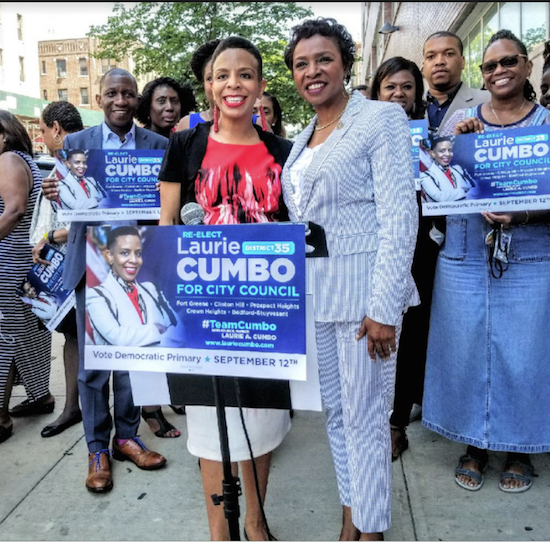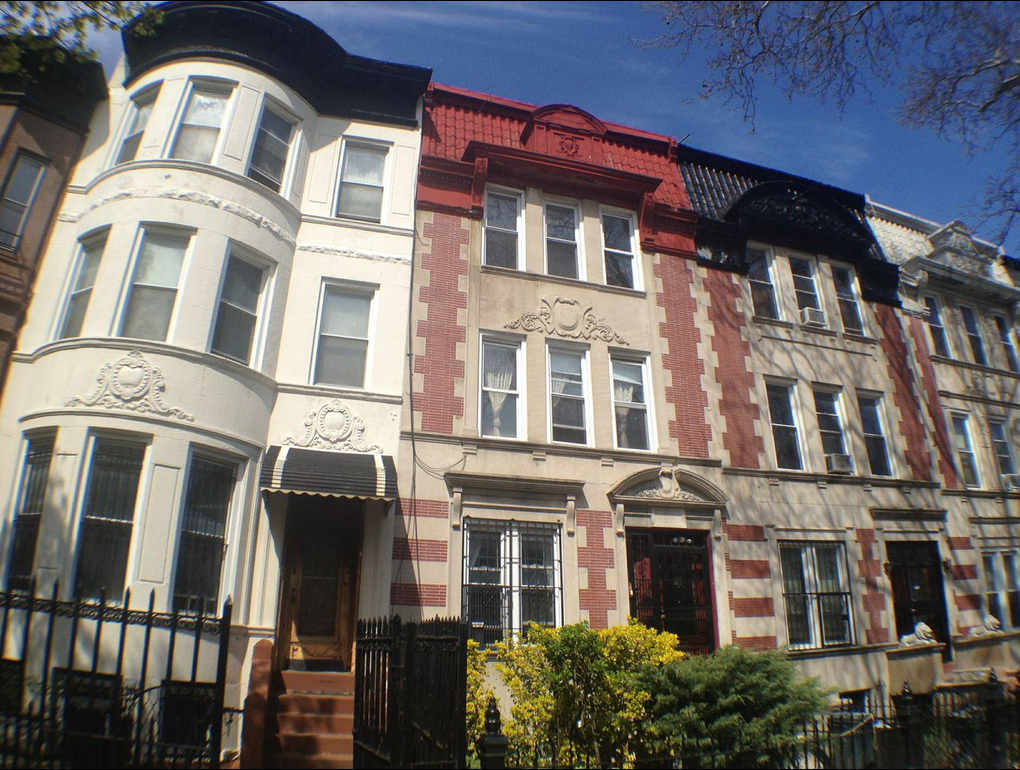CUNY study warns of City Council gender gap

If Councilmember Laurie Cumbo (left) wins re-election, she will be one of only a handful of females on the City Council when the new term begins. She is pictured during the primary campaign with U.S. Rep. Yvette Clarke. Photo courtesy of Cumbo campaign
The number of women on the City Council is likely to decrease significantly after the Nov. 7 election, according to an analysis of gender politics conducted by the City University of New York’s Institute for State and Local Governance (ISLG).
The researchers concluded that female representation on the 51-member Council could drop as low as 23.5 percent following the election. It is currently 26 percent. Nationwide, the percentage of female elected officials is 33.6 percent.
Women make up 52 percent of the population of New York City.
